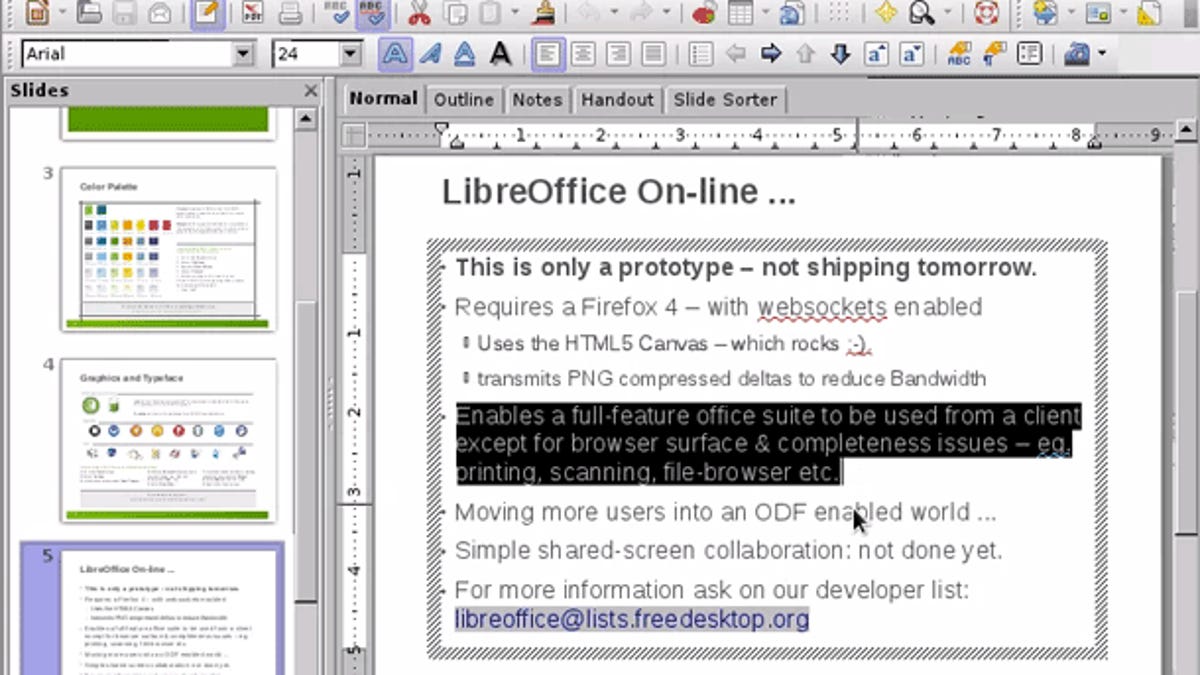Post-PC LibreOffice heads for Web, iOS, Android
Programmers are working on liberating the open-source office suite from personal computers with tablet and browser versions due by early 2013.

LibreOffice, the project forked from OpenOffice.org, is moving into the modern era with developers working on versions that run in Web browsers and on iOS and Android devices.
The Document Foundation announced the moves today at the LibreOffice Conference, but the work isn't available yet for ordinary folks to try.
"These are not products available to end users, but advanced development projects which will become products sometimes in late 2012 or early 2013," the foundation said today.
Still, the work shows signs that the project, which never seriously threatened the strength of Microsoft Office, is working to remain modern in a computing industry no longer dominated just by personal computers.
The LibreOffice Online prototype uses the GTK+ software framework, HTML's new Canvas interface for 2D graphics, and the Web Socket interface for high-speed communications between a browser and a server. Michael Meeks of the Suse Linux project is leading the project, the foundation said.
Another Suse programmer, Tor Lillqvist, is working on versions for Android and iOS tablets with the hope that the software will arrive on smaller devices.
"The user interface work has yet to start in earnest but the bulk of the code is compiling," the foundation said of the work.
The foundation also announced that several French government agencies are switching 500,000 computers, mostly Windows machines, from OpenOffice.org to LibreOffice. "This increases the Windows installed base of LibreOffice by 5 percent in a single move," the foundation said.
OpenOffice was an open-source Sun Microsystems project that hung in limbo for months after the Oracle acquisition. Some programmers, frustrated with the situation, struck off on their own with a new variation. Afterward, though, Oracle handed the OpenOffice.org project over to the Apache Software Foundation, a respected open-source oversight body, with the result being that programming, marketing, support, and other work is divided among two separate but similar projects.
Linux sellers including Red Hat, Suse, and Ubuntu have thrown their support behind LibreOffice, for example, but IBM decided to contribute to OpenOffice.org.

